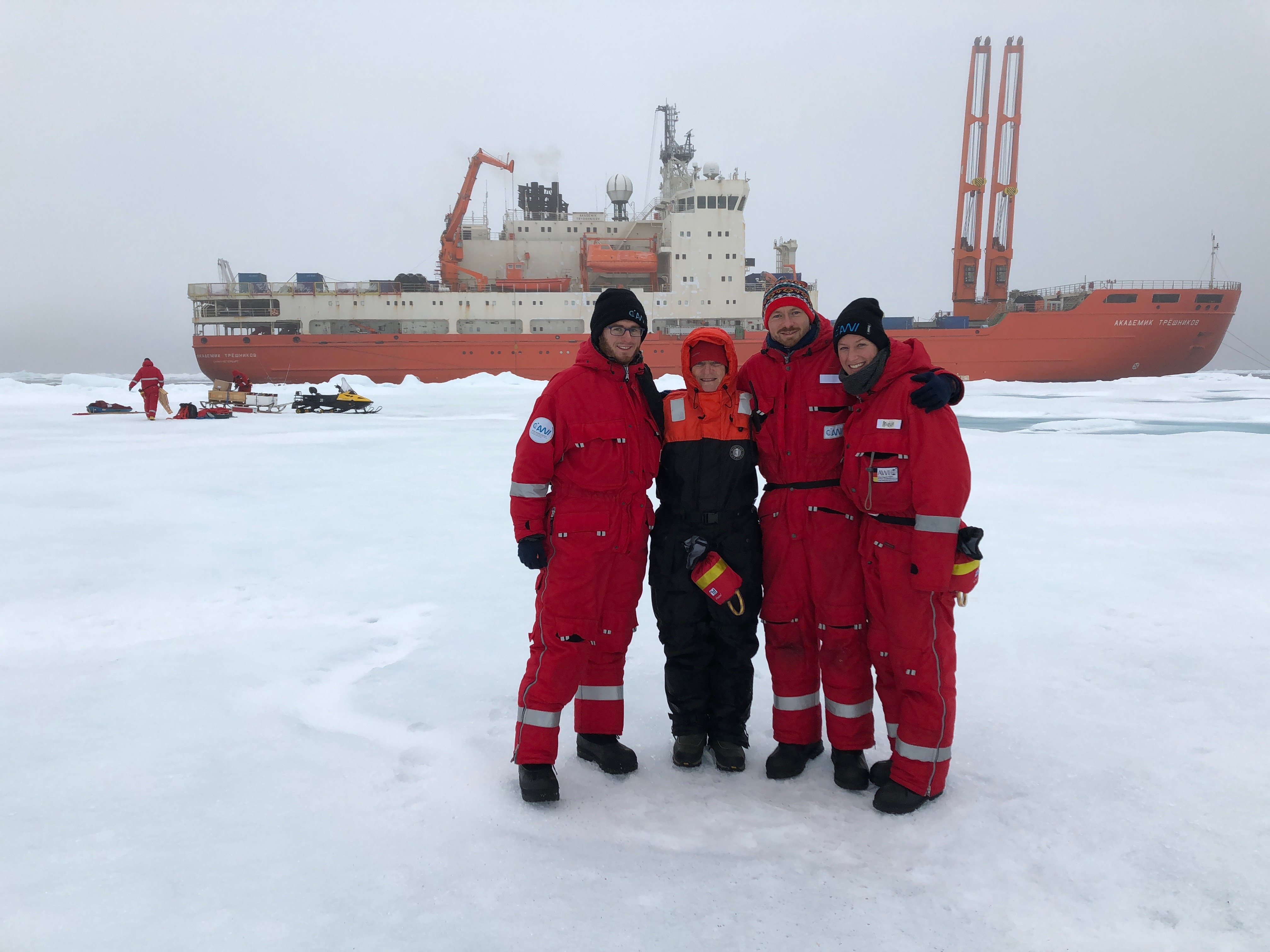Expedition embarks to assess the state of the eastern Arctic Ocean

NABOS participants pose on the sea ice in front of the research vessel Akademik Tryoshnikov during the 2018 expedition to the eastern Arctic Ocean.
Heather McFarland
907-474-6286
Sept. 10, 2021
A şÚÁĎłÔąĎÍř-led expedition embarks this week for a 40-day scientific cruise to assess the state of the eastern Arctic Ocean. The expedition, which is part of the , includes 27 participants from the United States, Russia, Japan and Denmark.
“Extensive plans include monitoring of the state of the Arctic Ocean, ice and atmosphere in the area with the most pronounced climate changes,” said chief scientist Igor Polyakov from the UAF International Arctic Research Center. “We will make a lot of complex observations in this remote area of the planet.”
This marks the 13th NABOS expedition to the Arctic Ocean since 2002. Their goal is to compile a cohesive picture of climatic changes in the Eurasian and Makarov basins through continued monitoring. These basins are experiencing dramatic changes due to accelerated atmospheric warming and an influx .

The research vessel Akademik Tryoshnikov prepares to sail out of Kirkenes, Norway, for the start of NABOS 2021.
Scientists aboard the research vessel Akademik Tryoshnikov will recover scientific sensors deployed during a 2018 cruise and set out new equipment to continuously record temperature, salinity and currents at different ocean depths. The team will also conduct extensive ship-based surveys, gathering water and ice samples for future chemical analysis.
The data collected will strengthen scientific understanding of Arctic currents, ocean circulation and interactions between the Arctic and Atlantic oceans.
NABOS’ repeated oceanographic surveys and the long-term maintenance of ocean sensors has been made possible through effective international collaboration between scientists from a wide range of institutions and scientific disciplines.
This research is funded by the U.S. National Science Foundation.
CONTACT: Hajo Eicken, director of the International Arctic Research Center, heicken@alaska.edu, 907-474-7280
024-22

The black line describes the expected NABOS 2021 expedition route. University of Alaska Fairbanks researchers flew to Kirkenes, Norway, where they quarantined before joining international colleagues aboard the research vessel Akademik Tryoshnikov, headed to the eastern Arctic Ocean.


